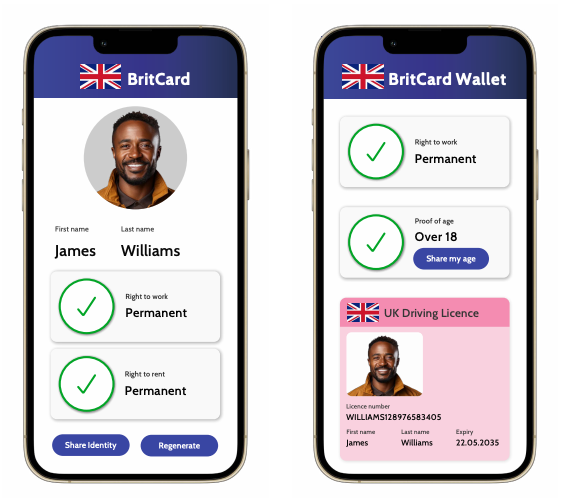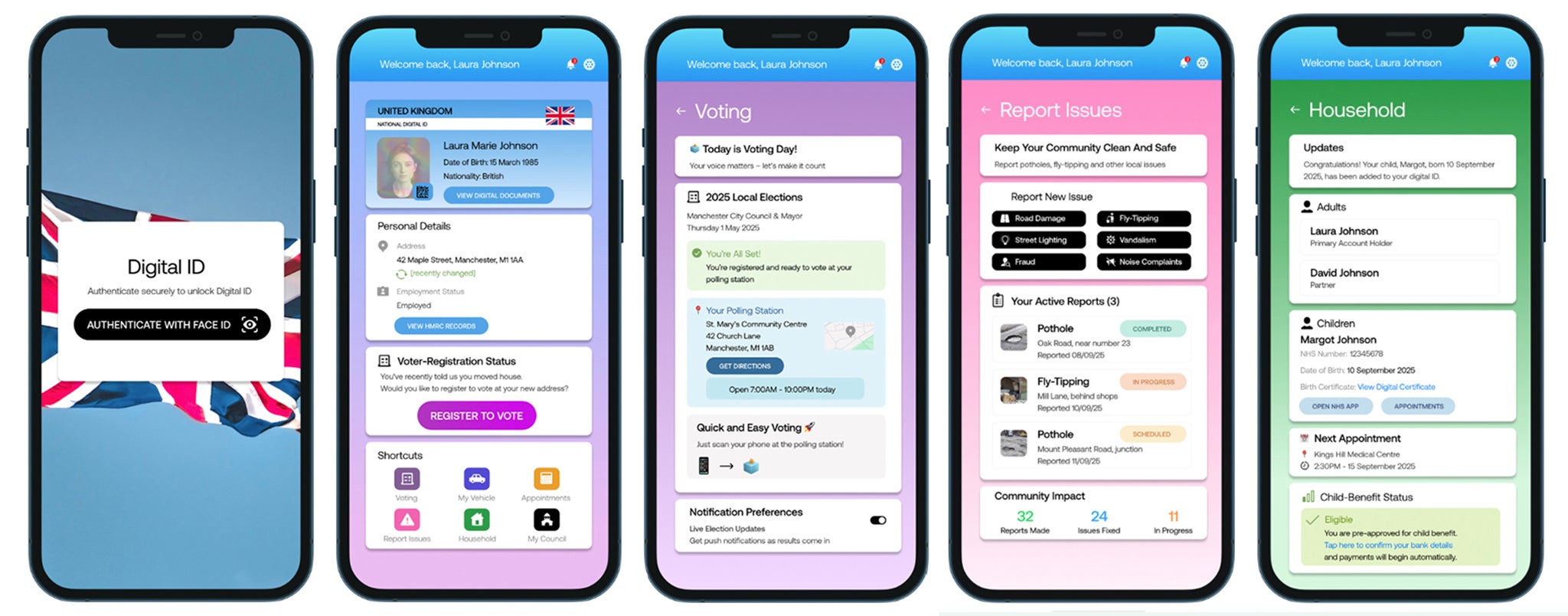Digital identity cards will be mandatory for every worker in the UK under new plans to be announced by prime minister Keir Starmer on Friday.
The “Brit card” is the Labour government’s latest attempt to crack down on illegal migration, designed to make it harder for people without the right to work to find employment.
It would verify an individual’s right to live and work in the UK, similar to the system in use in Estonia, where citizens are given unique identification numbers.
The plan was recently backed by new work and pensions minister Pat McFadden – before his move to the position – who said the UK was “behind the curve” and could use the scheme to tackle small boat crossings.

“People shouldn’t be able to come to the UK and work illegally if they don’t have a right to work,” he told The Times. “France has talked about pull factors in the context of the migration debate. If there are pull factors like that, we should deal with them.”
Plans to introduce the Brit card were recently laid out by influential think tank Labour Together, previously ran by Downing Street chief of staff Morgan McSweeney.
How would the Brit card work?
The Brit card would be a verifiable digital credential downloaded onto a smartphone, Labour Together explains. This could be instantly checked by employers or landlords using a free verifier app.
It would be issued free of charge to everyone who has the right to live or work in the UK, whether they are British-born or foreign nationals.

This card will become a “a familiar feature of daily life for everyone in the country,” the report says, adding that its development would cost between £140m and £400m.
The plans are expected to undergo a consultation and would then require legislation to implement.
The Brit card would be issued to everyone with the legal right to work and/or rent property in the UK, including those who have:
- British or Irish citizenship
- Indefinite leave to remain
- EU settled (or pre-settled) status
- A valid visa
Employers would be required to check the card of anyone they are looking to employ, and in doing so would create a record shared with the Home Office. This would enable the department to check that all employers are complying with the rules.
What would the benefits of the card be?
The main aim of the Brit card is to ensure no one works or lives in the UK without the right to do so, which is illegal.
The card would prevent this from happening by requiring employers and landlords to check someone has a valid card before hiring, or renting to, them.
Currently, when an employer hires someone, they already have to confirm their right to work in the UK. Legal migrants can do this digitally using an eVisa, while UK and Irish nationals can use a physical passport or several other valid documents.
But Labour Together argues that “the complexity of the rules” makes it relatively easy for a worker or tenant to present a document that belongs to someone else, or is fake.
The Brit card would simplify this process, and by making it digital, enforce data sharing with the Home Office to ensure the rules are being followed.

Plans for a digital ID have also long been called for by the Tony Blair Institute. Lord Blunkett, who piloted the Blair government’s initial ID scheme 20 years ago, said: “The introduction of digital identification will have to be truly universal – consolidating a whole range of digital documentation used in everyday life – but it must also have safeguards, which are impossible without an overarching plan.
“A voluntary scheme is a complete waste of time as that is what we have already. But a joined-up approach would allow us to tackle some of the major challenges of the moment.”
However, eight civil liberties groups warned this week that mandatory digital ID risks pushing “unauthorised migrants further into the shadows.”
Big Brother Watch’s interim director, Rebecca Vincent, was among those warning that rolling out a compulsory identification system could be “uniquely harmful to privacy, equality and civil liberties”.
Her organisation has garnered more than 101,000 signatures on a petition, calling on Sir Keir to reject proposals for the Brit card.
